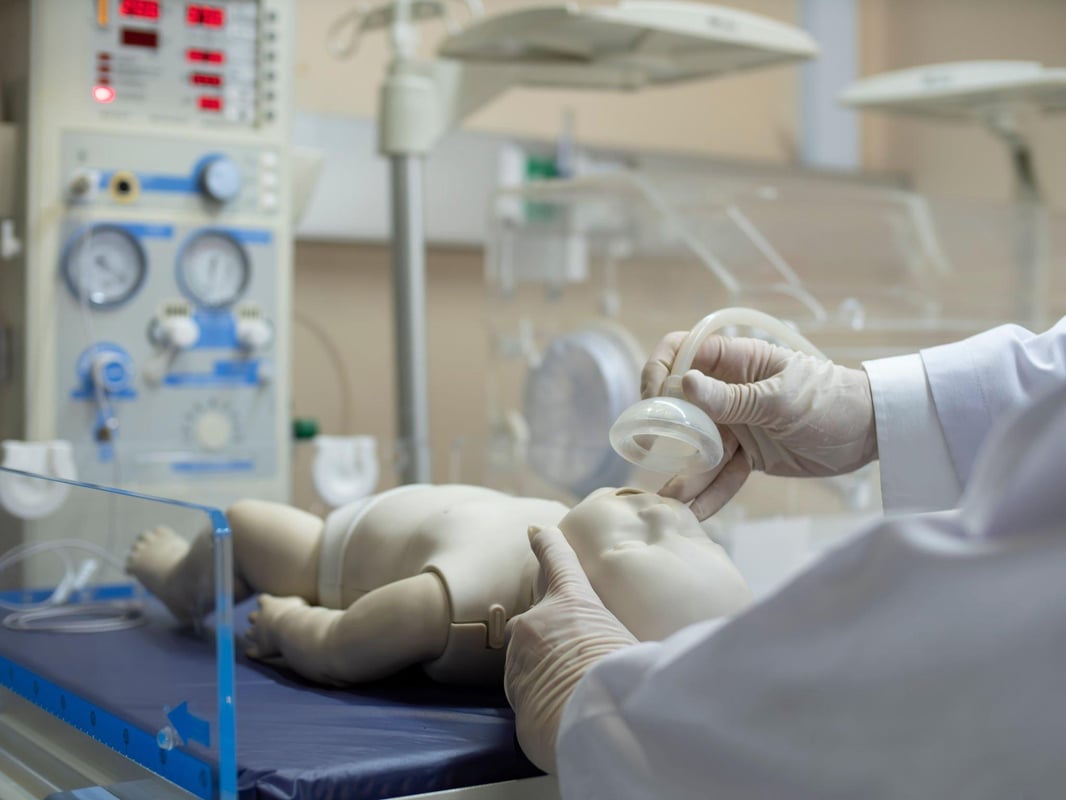
Financial aid (may be available)

Financial aid (may be available)

$950 to start
$2,490 total

Financial aid (may be available)
$276 total
$2,075 total
$270 total
$410 total
$365 total
$150 total
No cost info
$285 total
$150 total
No cost info
The field of healthcare is diverse and rewarding. One of the areas that healthcare professionals can specialize in is Pediatric Advanced Life Support (PALS). If you're in Cincinnati and interested in gaining this qualification, you might be wondering where to find a reputable PALS class. This blog post is designed to guide you in the right direction, providing information about what PALS is, the training requirements, what to look for in a class, and what to expect from the day-to-day class experience.

Pediatric Advanced Life Support (PALS) is a critical procedure used in the emergency treatment of children and infants suffering from life-threatening illnesses and injuries. As a PALS certified professional, you could be dealing with respiratory and circulatory emergencies, shock states, or even cardiopulmonary arrest in children and infants.
Before enrolling in a PALS class, there are certain prerequisites you need to fulfill. These typically include:
Basic Life Support (BLS) certification: This is a foundational course that provides the skills necessary to perform cardiopulmonary resuscitation (CPR) and automated external defibrillator (AED) use.
Familiarity with ECG rhythm identification: A basic understanding of ECG readings is usually required, as it's a critical aspect of pediatric advanced life support.
When choosing a PALS class, consider the following:
Curriculum: Ensure the course covers all necessary topics, such as pediatric emergencies, cardiopulmonary resuscitation, respiratory emergencies, and post-cardiac arrest care.
Accreditation: The class should be accredited by a recognized health or education body. This ensures the training program meets certain standards and that your certification will be recognized by employers.
A PALS class typically includes a blend of theoretical knowledge and practical skills training. This may include:
Lectures and presentations: These will cover foundational knowledge on pediatric emergencies and how to respond to them.
Practical simulations: These provide hands-on experience in simulated pediatric emergencies, allowing students to apply their theoretical knowledge in a controlled environment.
Once you've completed your training, you'll need to pass a written exam and a skills test to become PALS certified. After passing these tests, you'll receive your PALS certification, which is typically valid for two years.
After becoming PALS certified, you can explore various job opportunities in the healthcare field. You might work in a hospital, emergency medical services, or in a pediatric care facility. It's advisable to check job listings on health-related job boards or the job section of hospital websites to find relevant opportunities.
Once you have your PALS certification, you might consider furthering your education with additional classes. For instance, you could pursue advanced cardiac life support (ACLS) training or a neonatal resuscitation program (NRP). These additional certifications can broaden your skill set and increase your employability in the healthcare field.
Your PALS certification is typically valid for two years. After this time, you'll need to renew your certification by taking a PALS renewal class. This class provides a refresher on the skills and knowledge learned in the initial PALS class and ensures you're up-to-date with the latest best practices.
While theoretical knowledge is important, hands-on experience is critical in PALS training. Practical simulations allow you to apply your knowledge in a controlled setting, preparing you for real-world emergencies.
Working while training for your PALS certification can be challenging, but it's certainly doable. Consider flexible training programs that offer evening or weekend classes, or online courses that allow you to learn at your own pace.
Pursuing a PALS certification is a commendable step in enhancing your healthcare career. It equips you with the skills to handle pediatric emergencies effectively, making you a valuable asset in any healthcare setting. Remember to consider factors like curriculum and accreditation when choosing a PALS class and make use of platforms like Dreambound to find the perfect class for you. With the right training and dedication, you'll be well on your way to becoming a PALS certified professional.
For more information on related healthcare careers in Ohio, check out these articles on how to become a certified medication aide in Ohio, how to become a medical sonographer in Ohio, and how to become a respiratory therapist in Ohio.
Dreambound has an extensive collection of guides that dive deep into how to get started in the field, tailored for various cities. For those based in different locations or planning to move, we recommend exploring our other guides.
Dreambound's platform allows prospective students to find the right educational program for them through searching, filtering, and connecting with our extensive selection of career & technical education partners.
Dreambound has over 70 programs across healthcare, technology, business, and industrial trades. This includes programs such as Medical Billing, Cybersecurity, and welding.
Some of our schools offer financial aid for those who qualify. Many others offer payment plans, where you can pay the cost of class over time.
Yes, Dreambound offers many online programs. On Dreambound's search, you can filter by online, in-person, and hybrid (part online, part in-person).
Dreambound is completely free for you to use! We are supported by schools and organizations who pay to advertise on our website, so we can offer all of our career resources for free.